Out & About with Arqus – Check out the experience of one of our students at ESA 2024
|
17 Jul 2024|
17 Jul 2024
Remotely and for three days on-site in Strasbourg, Konstantin worked with his fellow panellists from other European universities on the timely topic of “artificial intelligence”, besides coming up with eight policy recommendations about how to improve the European Union’s Artificial Intelligence Act. They grew together as a group and created a united European Union of students. Here, Konstantin gives an overview of the activity and shares his impressions.
Overview
Since January 2024, I have had the great opportunity to participate in the grassroots policy project European Student Assembly 2024 (ESA24). It’s the project’s 3rd edition, which gathers 250 students representing 59 nationalities coming from 170 universities belonging to 41 European university alliances.
Being a PhD student at Leipzig University, I represented the Arqus European University Alliance. Six other students from different Arqus universities were participating with me.
The European Student Assembly 2024 can be divided into three phases: the preparation, assembly, and dissemination phase. In the preparation phase, we debated and drafted our policy recommendations remotely. It took place from January to April 2024. During the assembly phase, we discussed our recommendations with other panellists and voted on them. It was held at the European Parliament in Strasbourg 10-12 April 2024. During the dissemination phase, which is taking place currently, all participating students advocate their own policy recommendations among stakeholders.
I applied to attend ESA24 to get to know international political work, such as policy designing and political decision-making. I had participated before in similar projects and had always liked to interact with people from other countries and share ideas about how we want to shape the way we live together. For me, such exchanges always present an educational asset. Furthermore, I am politically engaged and think it is important to find a constructive approach to our pressing problems. The European Student Assembly 2024 allowed me to follow all these motivations.
Before the preparation phase started all participants were divided into 11 panels that focused on major current political issues. My panel dealt with the EU Artificial Intelligence Act and comprised 22 students led by two organizers. We split into five subpanels; the subpanel I was part of focused on anthropological research, education, and culture in the field of “artificial intelligence.” In our subpanels, we drafted concrete policy proposals and, as a group, we reviewed and discussed them. Additionally, our panel met with “AI” researchers and learned about legislative challenges concerning this technology, among other things,
All ESA24 participants also had the opportunity to participate in online workshops about topics such as the structure of the European Union or how to design policies. I developed a profoundly critical perspective on technology and “artificial intelligence” and argued for self-reflective, intensive, long-term research and education focusing on the creation of technology.
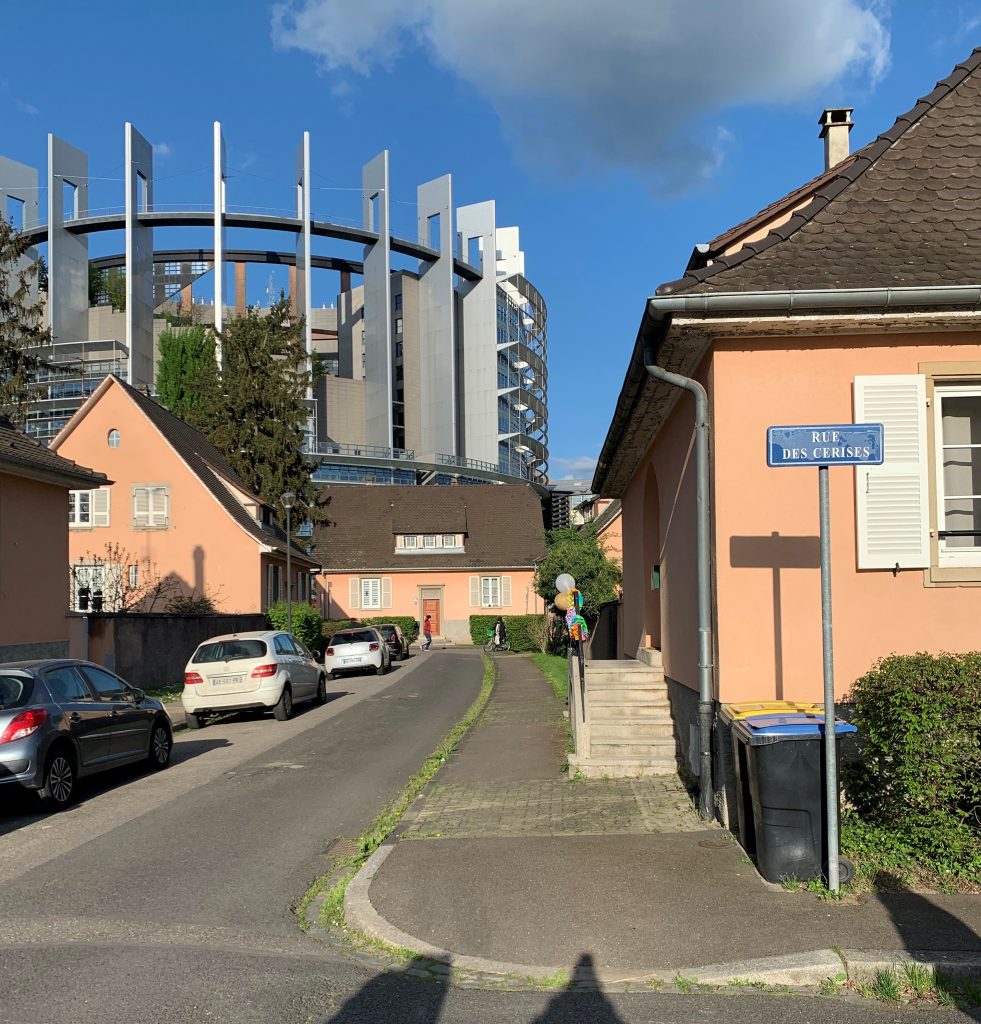
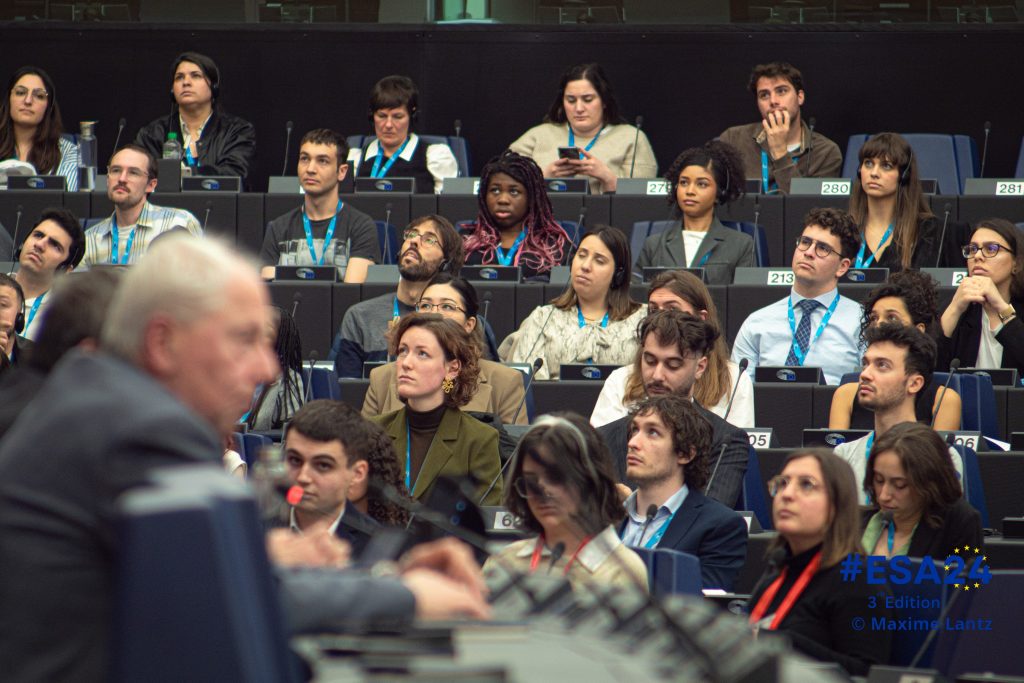
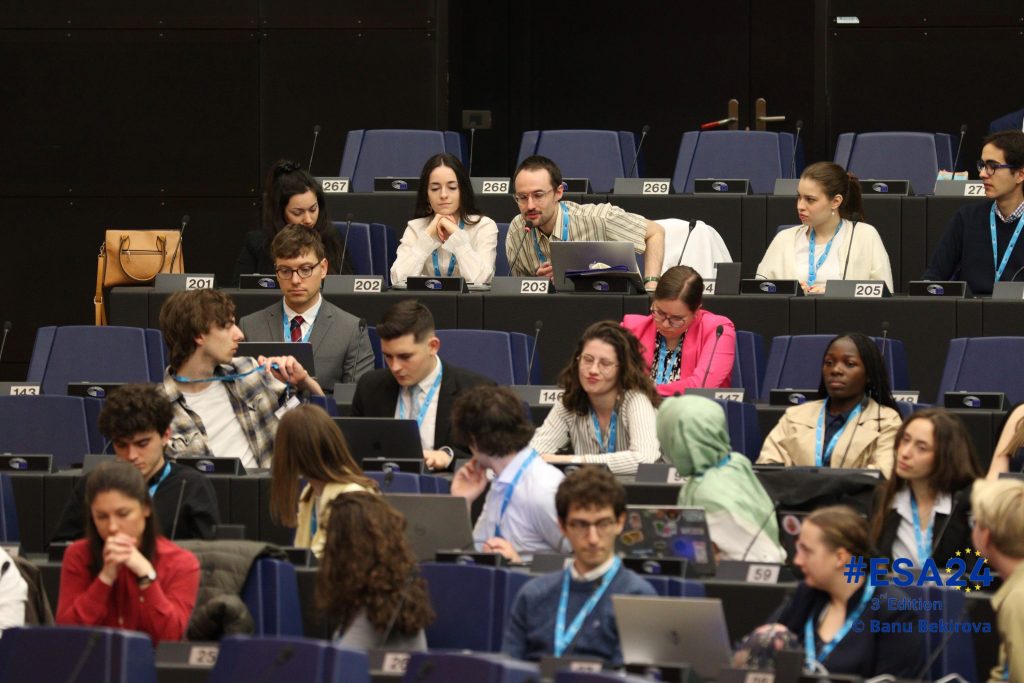
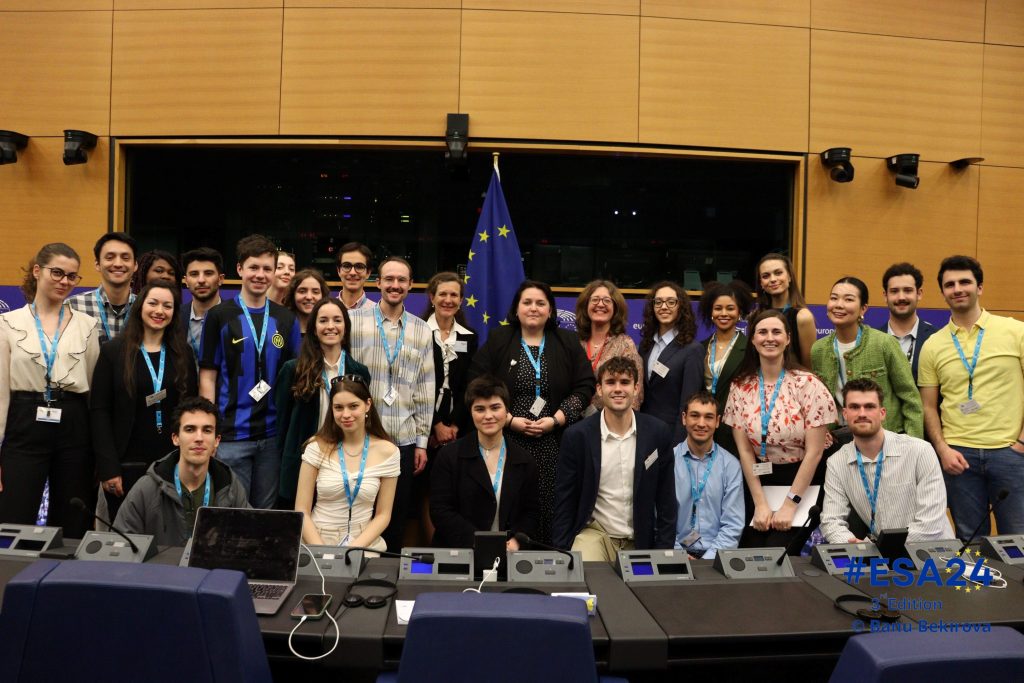
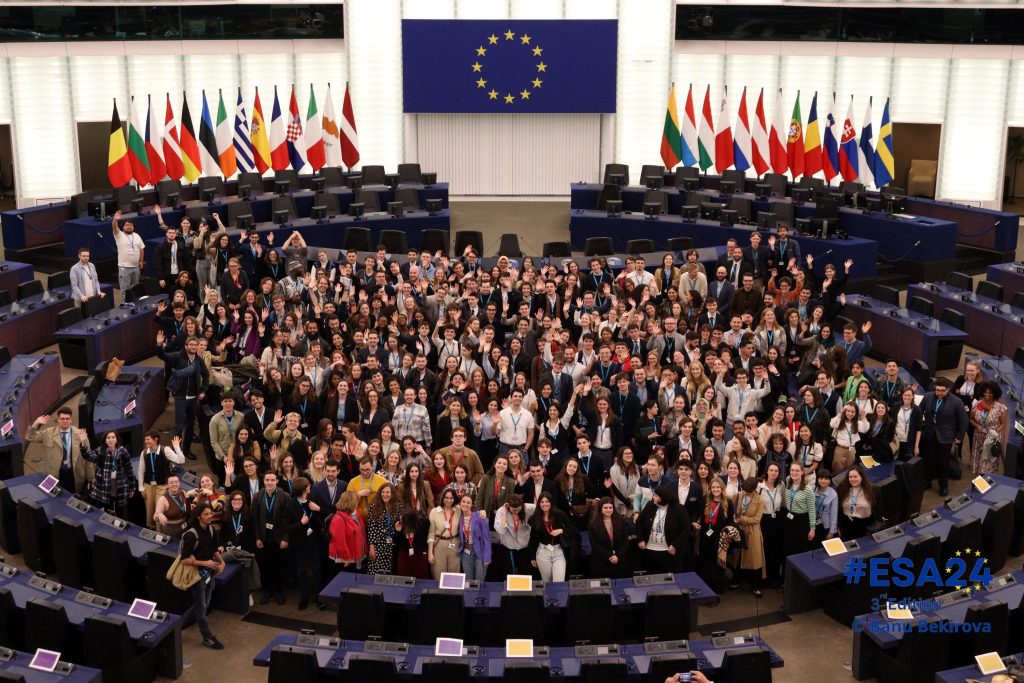
In Strasbourg, we engaged in inter-panel debates on our proposals and finalized them. We worked within our own university alliance, found out about other European university alliances, visited some parts of the EU Parliament, and took part in a tour of the city.
It was highly educational and enriching to research the topic and work together in the online sessions as well as on-site in Strasbourg. I got to know the perspectives of my fellow panellists and experienced unexpected things, such as an interesting work by Éric Sadin, which has not yet been translated into English or German.
My days in Strasbourg were very full, intense, amusing, productive, and rewarding. I was socializing a lot with my fellow panellists and, to a lesser extent, with other ESA24 participants. We visited the city, walked to the parliament and back to our accommodations, had meals and took pictures together, and talked as well as laughed a lot. I learned that political work can be fun. The evolved relationships and shared experiences constitute the true achievement of the project and represent for me a united European Union of Students. This is a ray of hope in our time.
Konstantin Groß, Leipzig University.
Pictures by Banu Bekirova.